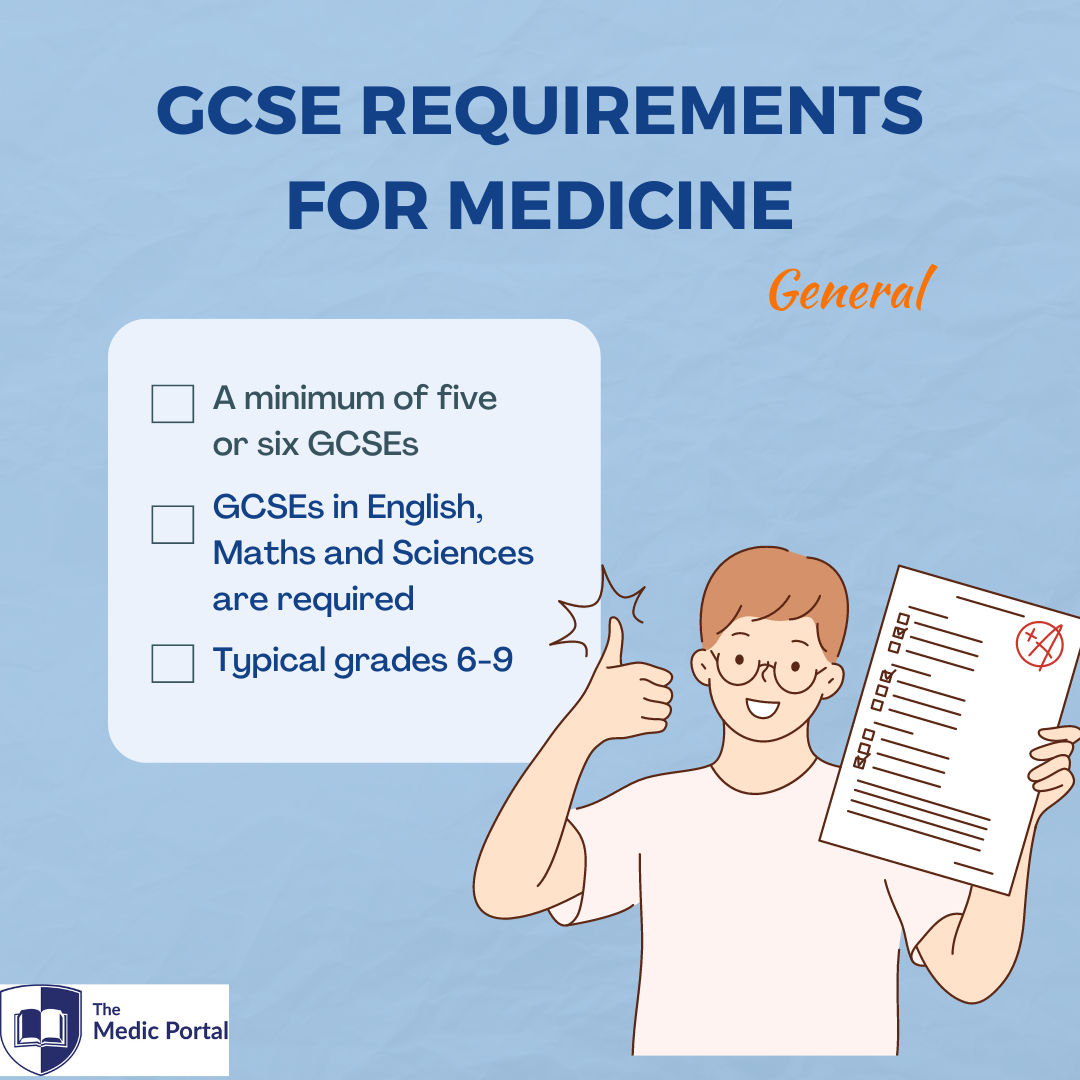What GCSEs Do You Need To Become A Doctor?
In addition to A-Level requirements, most medical schools require GCSEs of a particular standard in English, Maths and Sciences. Many of them state they will accept a minimum grade 6 in these subjects, but stress that successful applicants will typically achieve grades 7-9 at GCSE.
When you’re choosing a medical school, it’s important to find out their GCSE requirements so you can check that you meet the criteria. Before making any decisions with your application, make sure you check the university websites for specific details of their entry requirements.

GCSE Subject Requirements
We’ve looked into the GCSE requirements for Medicine which are currently listed on university websites, and this is what we found.
English Language
The majority of medical schools specify that you’ll need grade 6 or above in GCSE English Language to apply there. Only a small number of universities say that you can apply for Medicine with a grade 4 or 5.
Medical schools generally don’t mention a requirement for English Literature, apart from Birmingham which says: ‘English Literature is not required but is one of the identified subjects that we will score.’
Maths
Most universities state that you’ll need grade 6 or above in GCSE Maths to apply for Medicine. Only a very small number say that you can apply there with a grade 4 or 5.
You might find that certain medical schools have different GCSE requirements for Maths if you are taking the subject for A-Level.
Sciences
Because universities expect medical applicants to be taking at least one science subject for A-Level, you might find that their GCSE science requirements are less specific.
For example, some don’t specify a GCSE requirement for Chemistry/Biology, because they already expect you to be taking A-Level Chemistry/Biology. Or they might ask for a higher grade in any science subjects that you aren’t studying for A-Level, e.g. Lancaster says that if you are not taking A-Level Chemistry, then your GCSE in Chemistry must be at least grade 7.
Where requirements for GCSE Chemistry and Biology are mentioned, most medical schools state they require a grade 6 or above and some ask for grade 7.
A much smaller number of medical schools mention GCSE Physics in their requirements. Of these, most of them want you to have a grade 6 or above.
If you haven’t studied individual sciences at GCSE, many universities mention on their websites that they will accept Dual Award Science/ Double Science instead.
Other subjects
In addition to the core subjects of Mathematics, Sciences (Biology, Chemistry, and Physics), and English, some universities may have additional requirements or preferences for applicants looking to study Medicine.
For example, some schools may require or prefer applicants to have studied a modern foreign language, such as French or Spanish, or humanities subjects like History or Religious Studies.
Prospective medical students should research the specific requirements of each university they are interested in, which you can easily check using our free comparison tool.
It’s worth noting that while achieving the required grades and subjects is important, universities also consider other factors like A level results, work experience, extracurricular activities, interview performance and personal statements when making their admissions decisions.
What Should I Do Next?
Making sure you have the necessary GCSEs is one of the first crucial steps on your journey to become a Doctor.
If your GCSE grades are very strong, you might want to focus on applying for medical schools which place a greater emphasis on these grades.
On the other hand, if you are less confident about your GCSE grades, you might want to shortlist medical schools which have less competitive GCSE requirements – or which place more emphasis on other elements of your application like A-Levels or the UCAT.
FAQs
What GCSEs are required for Medicine?
On average, most UK medical schools require a grade 6 or above in GCSE English Language, a grade 6 or above in GCSE Maths and a grade 6 or above in Sciences. Specific requirements for Sciences differ, with most schools specifying grades for Biology/Chemistry and rarely for Physics.
Note: many schools will accepts GCSE resits.
Is 5 GCSEs enough for Medicine?
Medicine is highly competitive – typically, medical schools require a minimum of five or six GCSEs at grades 6-9, with most successful applicants scoring 7-9.
Do you need all 9s to get into Medicine?
Although you should aim to achieve top results for your GCSEs, no medical school will expect you to get all 9s. For example, Oxford says its applicants hold around 80% of GCSEs passes at grades 8 or 9 (A*) and have 8.5 passes at grades 8 or 9 (A*). While the majority of Imperial student intake has 7-9 grades (A-A*) at GCSE level.
Remember that your application will be judged on a whole variety of factors and personal achievements, with GCSEs just being one of them.
Can I be a doctor with no GCSEs?
Generally, UK students are required to present their GCSEs when applying to study Medicine. Foreign students can present an equivalent international qualification.
What GCSEs do you need to be a dentist?
Most dentist schools require at least 5 GCSEs, with grades between 6-9.
